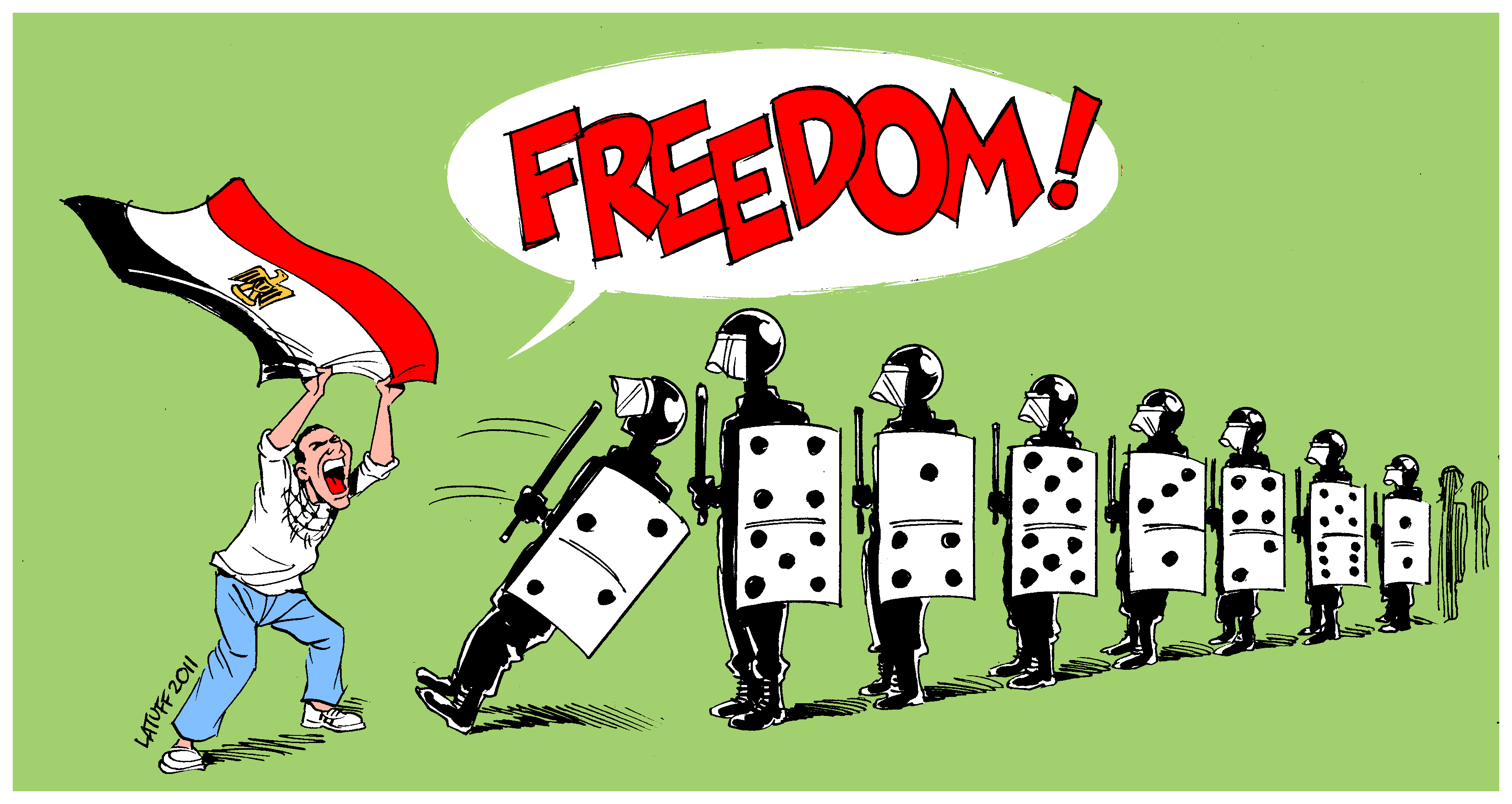
in 1965 his father (CIA co founder) shot himself with Fank junior's shotgun....
CIA: Frank G. Wisner arrived in Cairo

As the Egyptian revolt swells, the U.S. National Security Council considered that the handling of the situation by Margaret Scobey, their Ambassador in Cairo, was not good enough.
Ms Scobey is a career diplomat with a significant track record in the Middle East, but lacks experience in secret operations. Without prejudging the future, she has spared no effort to meet with the greatest number of players and establish ties with all camps at the same time.
For the National Security Council, it is not enough to simply safeguard the interests of the United States. It is absolutely indispensable to preserve the Egyptian-Israeli peace, which implies having to choose the next leaders of the country. Thus, the NSC called on Frank G. Wisner, former Ambassador to Egypt (1986-91), and dispatched him urgently to Cairo where he arrived on 31 January 2011.
Mr. Wisner is the son of Frank G. Wisner Sr., co-founder of the CIA and Gladio. (NATO terror goup!) Together with Allen Dulles (NAZI collaborator, CIA founder), Wisner Sr. was one of the architects of the U.S. secret intervention doctrine: support those democracies which make a "good choice", oppose those which make the wrong choice.
As for Frank G. Wisner Jr., he has always worked for the Agency and continues to do so, serving in particular as a Director of Refugees International.
Ambassador Wisner, a personal friend of dictator President Hosni Mubarak, has been tasked with organising his low-key destitution. His arrival was discretely preceded by a telephone call from Joint Chiefs of Staff Chairman Mike Mullen to his Egyptian counterpart General Sami Enan —the Egyptian army is trained and equipped by the Pentagon—. Officially, Mullen commended him for his restraint, a message perfectly deciphered by Cairo which was followed, a few minutes later, by an announcement that the army viewed the protests as legitimate.
Frank G. Wisner Jr. is not known to the U.S. public either as a diplomat or as a master spy, but as an unscrupulous financier. He was part of the Enron power elite involved in the fraudulent bankrupcy of the corporation that ruined countless small investors and, later, as Vice Chairman of American International Group whose share prices plummeted by 95% during the 2008 financial crisis before its bailout with taxpayers' money.
Although not at all known in France, Wisner Jr. has nevertheless played a major role in that country's recent history. He married Christine de Ganay (Pal Sarkozy's second wife) and, in that capacity, reared Nicolas Sarkozy during his New York days. It was he who introduced Sarkozy during his teen-age years to CIA insiders and opened the doors for him of French political circles. One of Wisner's sons was Sarkozy's English-speaking political campaign spokesman; another one of his children became one of the pillars of the Carlyle Group, the Bush and Ben Laden asset management firm.
In addition, it was Frank G. Wisner who strongly recommended his friend Bernard Kouchner as French Foreign Minister with the mission to mobilise European states in favour of Kosovo's independence.

Frank George Wisner II (born 1938) is an American businessman and former diplomat. He is the son of Frank Wisner (1909 – 1965). On 31 January 2011, he was sent to Egypt by President Barack Obama to negotiate a resolution to the popular protests against the regime that have swept the country.[1] A White House spokesman said that Wisner had vast experience in the region as well as close relationships with many Egyptians in and out of government. The New York Times reports that he is a personal friend of Egyptian president Hosni Mubarak.[2]
Wisner was until recently Vice Chairman of American International Group. He retired from this post as of February 13, 2009, according to an internal AIG memo issued by Edward Liddy, CEO. While at AIG, he served under President George W. Bush as special envoy to the Troika group for the negotiations of the future status of Kosovo.
Wisner was born in New York on 2 July 1938. He attended Woodberry Forest School, and then attended Princeton University, graduating in 1961. He joined the State Department as a Foreign Service Officer in December of that year.
In 1976, at the beginning of the Carter administration, he served under Cyrus Vance as Deputy Executive Secretary of the Department of State. Among his overseas assignments, Wisner served as the United States Ambassador to Zambia (1979-82); Egypt (1986-91), the Philippines (1991-92), and India, 1994-97.
After retiring from government service in 1997, Wisner joined the board at a subsidiary of Enron, the former energy company. He is also on the board of Hakluyt & Company, a British corporate investigation firm.
In late 2002, Wisner co-chaired an independent working group which developed a model for the US's post-conflict role in Iraq, should an invasion occur. Their published recommendations included: establishment of law and order through the retraining of the Iraqi army, focusing on the distribution of humanitarian assistance and reestablishment of vital services, and the importance of avoiding the appointment of exiled Iraqi opposition leaders to dominant positions in the new government.[3]
Wisner is an Advisory Board member for the Partnership for a Secure America, a not-for-profit organization dedicated to recreating the bipartisan center in American national security and foreign policy. He also serves on the Advisory Board of the National Security Network, and on the board of Refugees International.[4] Currently he's a member of the board for EOG Resources Inc.
Wisner is married to Christine de Ganay (former wife of Pal Sarkozy and former stepmother of French president Nicolas Sarkozy), and they have four children.
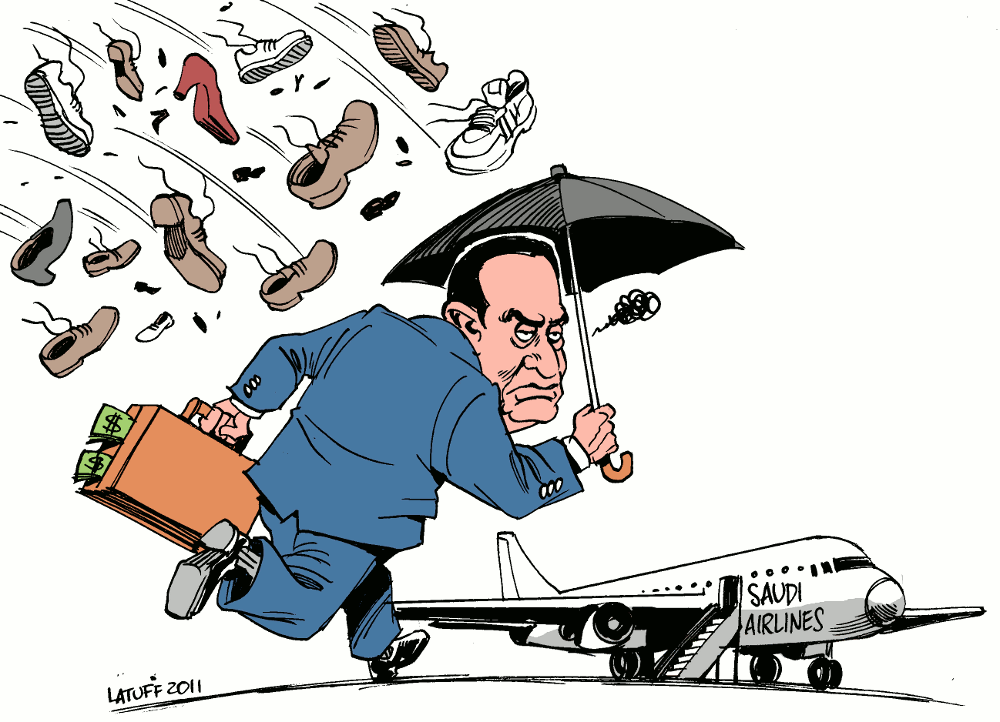
=== C I A ======================
Wisner Junior was well-known in the CIA and he worked as Under Secretary of Defense for Policy and Under Secretary of State for International Security Affairs; his current boss, Kenneth L. Lay, Chief Executive Officer of Enron Corporation, also worked for the Pentagon during the US war in Vietnam. With 'economic espionage' as a task for the CIA (see PD, 12 October 1997), there is little doubt that Wisner used this instrument during his long-tenure as Ambassador in Asian nations. A Wisner staffer told InterPress Services this year that 'if anybody asked the CIA to help promote US business in India, it was probably Frank'.
"When Wisner was US Ambassador to the Philippines (1991-92), Enron was in the midst of negotiations to manage the two Subic Bay power plants. When Wisner left Manila in July 1992, Enron won the deal and began to manage the plant in January 1993. During Wisner tenure in India, he fought long and hard to secure various deals for Enron. He went so far as to boycott the 'India Power '96 -- Beyond Dabhol' summit, despite being scheduled to give an address (this was part of a US advisory to companies to avoid India for six-months, a pressure tactic on India during the winter of 1995-96). Wisner left India earlier this year only after it seemed like Enron's place was secure."
Source: Vijay Prashad, "The Power Elite: Enron and Frank Wisner," circa 2000. See remainder of lengthy article.
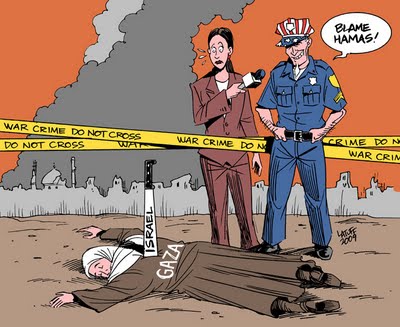
Obama says at 3:50
"Now ... it is not the role of any other country to determine egypt's leaders,
only the egyptian people can do that."
HAH! What a hypocrit, a liar and a double-faced illusionist!
The USA elites have changed the leaders of so many countries.
The USA elites DO see it as their role. Just google
Mohhamed Moussadeq Kermit
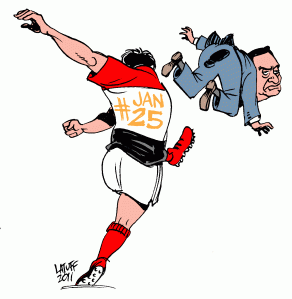
AMY GOODMAN: You were in Tahrir Square.
SHARIF ABDEL KOUDDOUS: That's right, Amy. Yesterday marked the one-week anniversary of this mass uprising across Egypt, and Tahrir saw the biggest demonstration that Egypt has ever seen under the Mubarak regime. Tens of thousands, hundreds of thousands of people streamed into the square yesterday for a very festive and celebratory gathering. They were people from all walks of life across Tahrir. And we went there in the morning and started at 9:30. And this is some of what we found on the way.
SHARIF ABDEL KOUDDOUS: It's just after 10:00 a.m. on Tuesday morning. Today marks the one-week anniversary of the popular uprising that began January 25th. There's more people here than I have ever seen in Tahrir yet in this revolt. Today is the day that they say they are going to get Mubarak out. There are throngs of people everywhere, masses. On our way in, three army checkpoints searched us, and five citizens checkpoints, as well. They're looking for our IDs, checking to see any remnant of the state security forces that tried to beat them down on Friday. People are picking up trash, telling people not to throw anything on the ground, but telling everyone to be peaceful. They're saying if someone antagonizes you, remain peaceful and don't respond. It's an amazing scene here, vibrant energy. And Tahrir is just absolutely packed.
NAZLY HUSSEIN: I'm Nazly Hussein, an Egyptian citizen and activist, if you would. And it's a revolution of everyone. It's really everyone's revolution. And I think a lot of people have made it seem like it's just for the radicals on either side or really a certain party, but that's not true. If you look around, there's everyone. Everyone, everyone, everyone, side by side, all with one cause. Women were treated with a lot of respect. I have never been treated with this much respect in Egypt, I must say. I was amazed, amazed at the Egyptian people. They have qualities that I thought they had lost. But no, they haven't.
MAHMOUD AYMAN: My name is Mahmoud Ayman. I'm a student at the Faculty of Engineering. You know, I came here today just to tell all the whole world that we're not asking for much. All we're asking for is when we vote for someone, we want that person to be in control. You know, we want our votes to go for the people who we vote for. We're not asking for much. I just want to deliver a message for the whole world about the way the Egyptian government treats us. Those days the Egyptian police let the criminals in the streets so that the Egyptian people will be afraid and stay at their homes and defend their homes and defend their earnings. So, it that's the way the Egyptian people—or Egyptian government treats us at the crisis, so how they will be treating us at the normal situation?
WALID HEGAZY: My name is Walid Hagazy. I'm a lawyer, and I live in Egypt. And I'm coming here to participate in this event, which I think it's unprecedented in Egyptian history. I've never seen the Egyptian people get together and do something so successfully and so neatly. We are all one hand together. I have never actually seen this square as clean as it is today. Despite the Million Man March, I don't see anything on the floor. I see that people are really expressing themselves in a very civilized way. I'm very proud of my country. For a very long time, I feel that I'm really—I own this place; this is my country. Finally I feel it's my country. It's not the country of the police. It's not the country of the governing elites or the ruling elites. It's my country. So I'm really proud to be an Egyptian today.
SHARIF ABDEL KOUDDOUS: In the middle of Tahrir, there's a patch of grass where people have spent the night here for days. They've camped out. You can see some tents. Many have just slept out into the open. There's rugs. And even though tens of thousands have been here refusing to leave Tahrir Square, there's very little trash around. People are still picking up. And they are resolute. There's people handing out water. There's people handing out food. They've kept the place organized and clean. People are so determined to use this as their protest space here in Cairo.
TAREK SHALABY: Tarek Shalaby, a 26-year-old web designer and social media consultant, also a blogger, from Cairo, Egypt. And right now we're in Midan Tahrir, and I've been camping out with my friend here in Midan Tahrir for the past two days now. So it's two nights. And we're going to remain here until Mubarak leaves.
SONDA SHABAIK: My name is Sonda Shabaik [phon.]. What's happening here is different than what's been happening since Tuesday, on Tuesday, Wednesday and Friday, where women were protesting just the same way men were. Women were jumping on the cars of the police forces just the same—because we're both very angry. It doesn't really make a difference. Women are not less angry than men. But now that we're actually here, you can see women distributing food, taking care of the first aid. I can't really define roles, because we're both doing the same thing. Roles are divided, but not according to gender at all. I thought maybe the people staying the night would be mostly men, but I was proven otherwise.
SHARIF ABDEL KOUDDOUS: And how long are you going to stay here?
SONDA SHABAIK: For as long as it takes. I have nothing to lose. If Mubarak stays, then I don't think I have a life anymore, because they took pictures of me saying, "Down with Mubarak!" So, this means, if he stays, we all go down. We all go, as they say, behind the sun.
SHARIF ABDEL KOUDDOUS: There's have been tens of thousands of people here for day after day. Yet it's remarkably clean.
TAREK SHALABY: Yeah, of course. Well, that's the thing. It's a big "to hell with the government," like it's a big message we're sending to the minister of interior, especially. After they did the very low move of pulling out all the police force from everywhere, we had to do everything ourselves. So, there was a couple days of anarchy, that we're kind of still in, so people have to protect their buildings. We have communities, families organizing themselves to have like checkpoints on every corner. We have young people from every house or from every family protecting. But we've also gone out in the streets to clean up the garbage and to organize traffic. And so, here we're trying to make a big point that we're not going to make anything—we're not going to make any mess here. And actually, people are going around with trash bags and saying, "Donations to the National Democratic Party, anyone? Donations to the National Democratic Party!" And people throw their trash. And so, they're making sure that we keep this as clean as possible to show that we don't need this government, we don't need the minister of interior. We can do this on our own, and we can do it better. It's safer, cleaner and a much more pleasant life for everyone.
SHARIF ABDEL KOUDDOUS: This is an example of what people call the new Egypt, the Egypt without Hosni Mubarak. They're cleaning up their own trash. And they're piling garbage into a corner. They've been doing this around the week. They've been sweeping their own streets. And they're very proud of what they're doing right now. I've never seen this kind of community action in Egypt in such a chaotic situation. What's even more amazing is not only are they gathering the trash, but they are actually separating plastic, doing recycling here Tahrir. It really is quite an astounding scene and a symbol of the new Egypt that people hope for.
So, at the edge of Tahrir Square, just next to the Kasr al-Nile Bridge, which is the main bridge leading into the heart of Tahrir Square, we bumped into Hossam el-Hamalawy, a longtime dissident, blogger, journalist, socialist. He's been at this for years, organizing. This is a very special day for him.
HOSSAM EL-HAMALAWY: The atmosphere here is a carnival, in every sense of the word. You find, you know, I mean, banners that are just hilarious. I mean, if you can read in Arabic, they are all denouncing Mubarak as a dictator, as an agent for Israel and U.S. imperialism, denouncing him for what he did to this country over the past 30 years. Of course, I mean, the activist community here is a tiny minority for a change. It's a different picture from what we've been seeing over the past few years. It's ordinary men and women from all sects, and from all the provinces, actually, they descended here. And today, I was also happy to know that there will be simultaneous protests happening, coinciding with the Tahrir occupation, in Suez, in Mahalla, in Alexandria and also in other provinces.
SHARIF ABDEL KOUDDOUS: Do you think Mubarak is aware of what's happening here?
HOSSAM EL-HAMALAWY: Mubarak is hiding as a coward in his home in Sharm el-Sheikh, and he's definitely watching what's going on. And we can't believe that, you know, he's got the guts to stay, even after all of these protests. But we're very hopeful that he will be overthrown soon.
SHARIF ABDEL KOUDDOUS: After we left Hossam, we walk around the square. Everywhere we go, people clamor to be on camera to have their voices heard. After being stifled for so long, having their voices silenced for so long, they are dying to speak out and to let the world hear what they have to say.
Do you think Mubarak and his regime will be ousted?
TAREK SHALABY: Oh, yeah. Are you serious? There isn't a single doubt in my mind, or anyone else here, that it's only a matter of time. I'm optimistic enough to think that tonight's the night. And everyone says, if it's not tonight, by most like the latest will be Friday. Friday is like—we kind of put a deadline. Remember how Bush told Saddam, "You have 48 hours to leave"? Well, we're telling Mubarak, "We'll give you 'til Friday, alright? But we'll make your life a living hell every single day. So, if I were in your place, I'd leave tonight."
MOHAMED MOUSA: I'm Mohamed Mousa from Al-Shorouk daily news. I'm a journalist. I'm here today because every person who used to complain from Mubarak's regime, if he is not here today, I cannot—I have no excuse, if I don't come today. For 30 years—I was a student in the university when Mubarak started running this country, and for 30 years we were humiliated in the police stations. We don't have enough freedom. I'm a journalist. I cannot issue a newspaper like any country in the world without [inaudible] by the Ministry of Interior. Everything is closed. He's running the whole country for the interests of his own family and his own interests. It's incredible.
MOSHIR ISMAIL: I am Moshir Ismail. I'm a lawyer in Egypt. I think President Mubarak—I realize that he doesn't want to be dethroned. He wants to lead it himself. I realize that's what he has in mind. He wants to stay in power until his period comes to an end in September, next September. But I think, for both parties, him and these people, he should dethrone himself now. Being in power until September will cause anarchy, will cause disturbance. I think the relation between President Mubarak and the people has come to an end.
AMR HAFEZ: Amr Hafez, an engineer. I'm here to basically say that it's time for this regime to go. I think the last few days have really demonstrated to everybody what a police state means, and it really demonstrated and proved that this state security apparatus that we have is really a regime security apparatus that has no interest in actually guaranteeing any security for the people themselves. I think it's time for this regime to go and time to have major reforms, until we have presidential elections, whether in September or earlier than that.
SAMI HASSAN: Hi, my name is Sami Hassan. I live in Tuscaloosa, Alabama, U.S.A. I'm here on vacation, but when I heard about this protesting, I decided to join in, because I'm still Egyptian. And I'm very happy. And I want to tell everybody that we got our freedom by ourselves. And we deserve it. Egypt deserves a lot better than what we have right now.
SHARIF ABDEL KOUDDOUS: And how does it feel to be here today with everyone?
SAMI HASSAN: I cannot describe what I'm feeling now. I feel like—I can't describe it. It's a great feeling. It's a great, great feeling.
WALID HEGAZY: We want to have free elections. We want to choose our parliament. You know, you can't believe—the parliament doesn't represent us. Can you believe that? In a country that says it has a democratic constitution, we have not elected the people who are speaking on our behalf. We have not elected Mr. Mubarak. And in order to save this country and to save any more trouble—save Egypt any more trouble, he really needs to step down. He needs to do us a big favor at the end. We will always remember him that he finally, at least at the end, his last decision was a good decision, which is to leave the country and to leave power and to let us lead Egypt. This is a popular revolution.
SHARIF ABDEL KOUDDOUS: And why are you here today?
KHALED NABAWI: My name is Khaled Nabawi. I'm an actor. Listen, he has to—he has to please these people. He has to—he has to be up to their will. That's their will. And he's been always saying, "I will follow the simple people. I will follow the normal people." That's the time. OK, follow them. Follow them. This is very important, to follow them. This is the Egyptian people. You have to follow them. What do they have to do more than this to prove that they want a change?
SHARIF ABDEL KOUDDOUS: Tahrir has been filled with an ocean of people today. This is the largest protest since this popular uprising began one week ago. It was one week ago, January 25th, when people first started taking on the state security forces of Mubarak's regime. They have owned the streets since then. They have flooded in Tahrir. It's unclear how many people have come, but it is filling the streets around Tahrir. The citizens are taking care of this place. They are picking up the garbage. They are recycling the garbage. They are giving out food. They've set up tents. They've set up a medical center. This is the convergence point in all of Egypt for this popular uprising. Egyptians from all walks of life are here, young and old, rich and poor. We've spoken to lawyers, journalists, men, women, laborers, peasants, actors, from all walks of life. And they're here in Egypt to come to speak with one voice. They want Mubarak to step down. If he doesn't step down, they say they will keep coming here until he does. I'm Sharif Abdel Kouddous in downtown Cairo.
PRO-DEMOCRACY PROTESTERS: No Mubarak! No Mubarak!

cartoon by Latuff (taliban yes we can VietGahnistan)



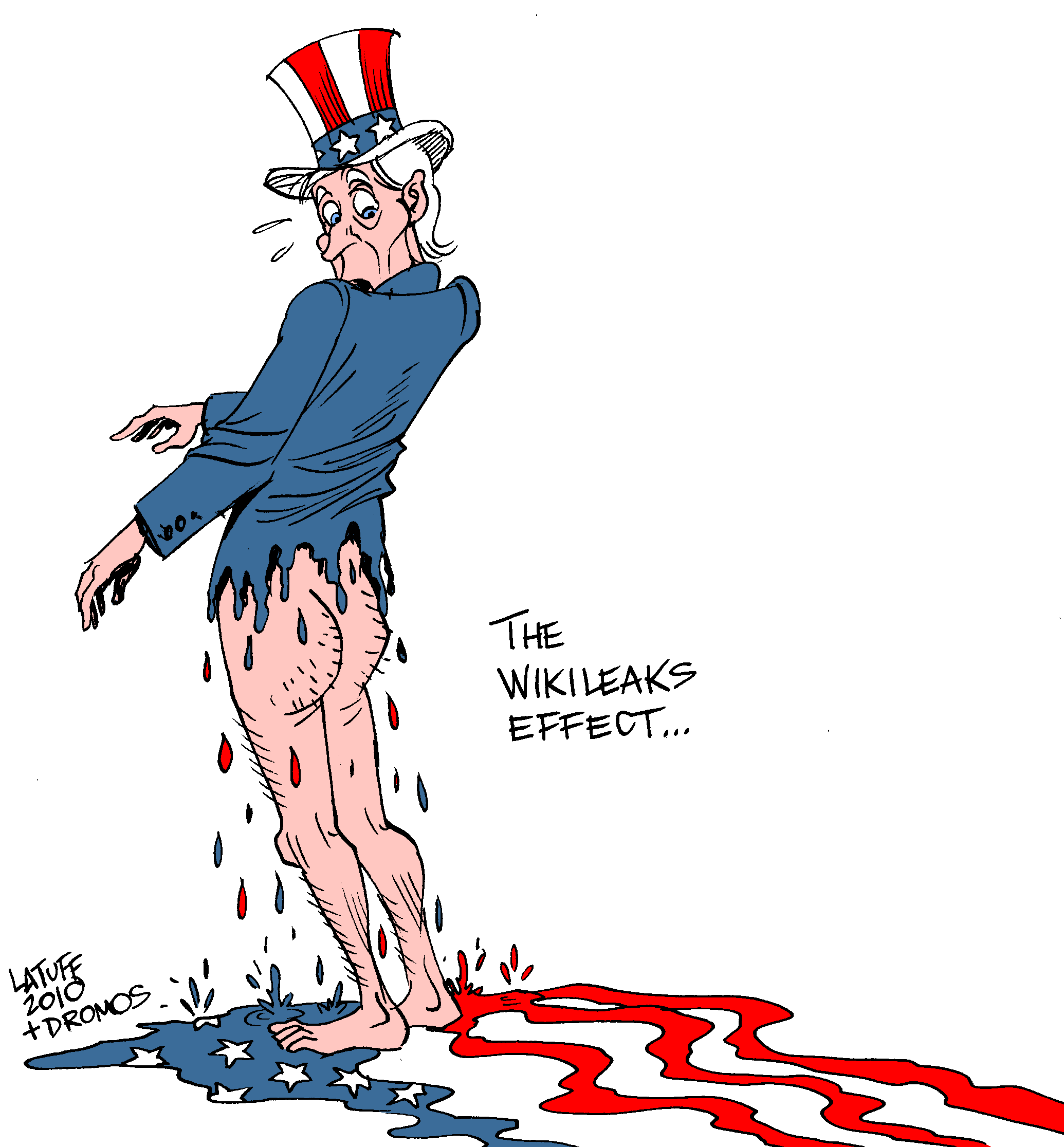

No comments:
Post a Comment